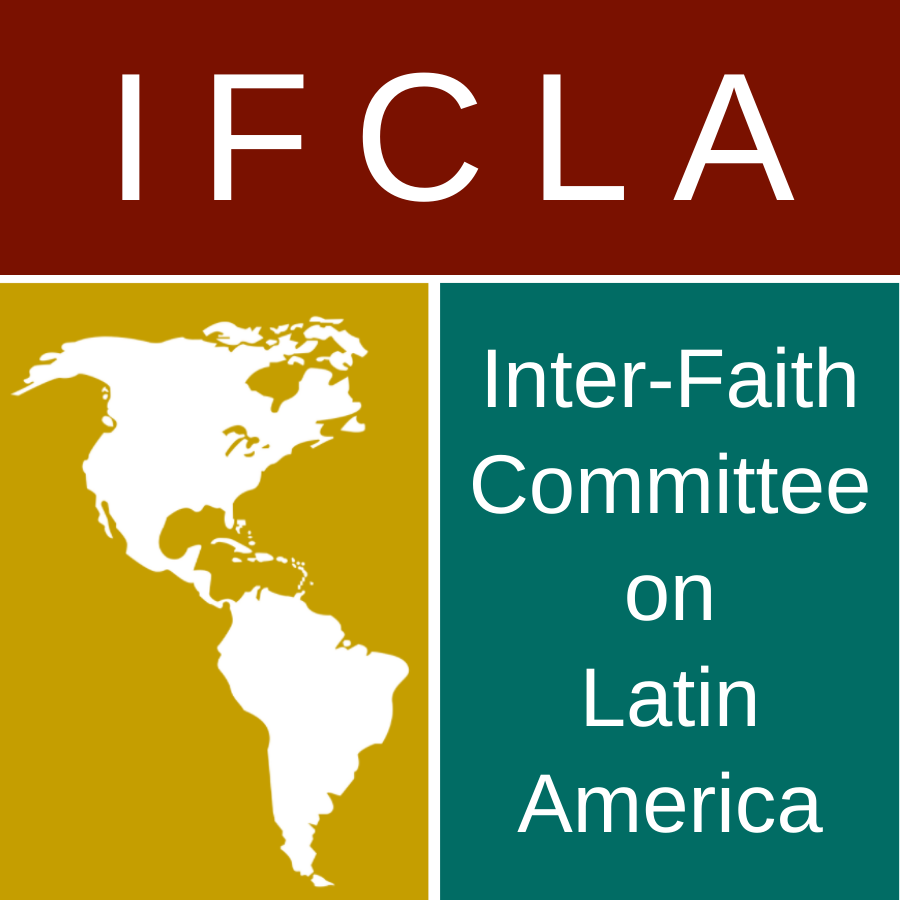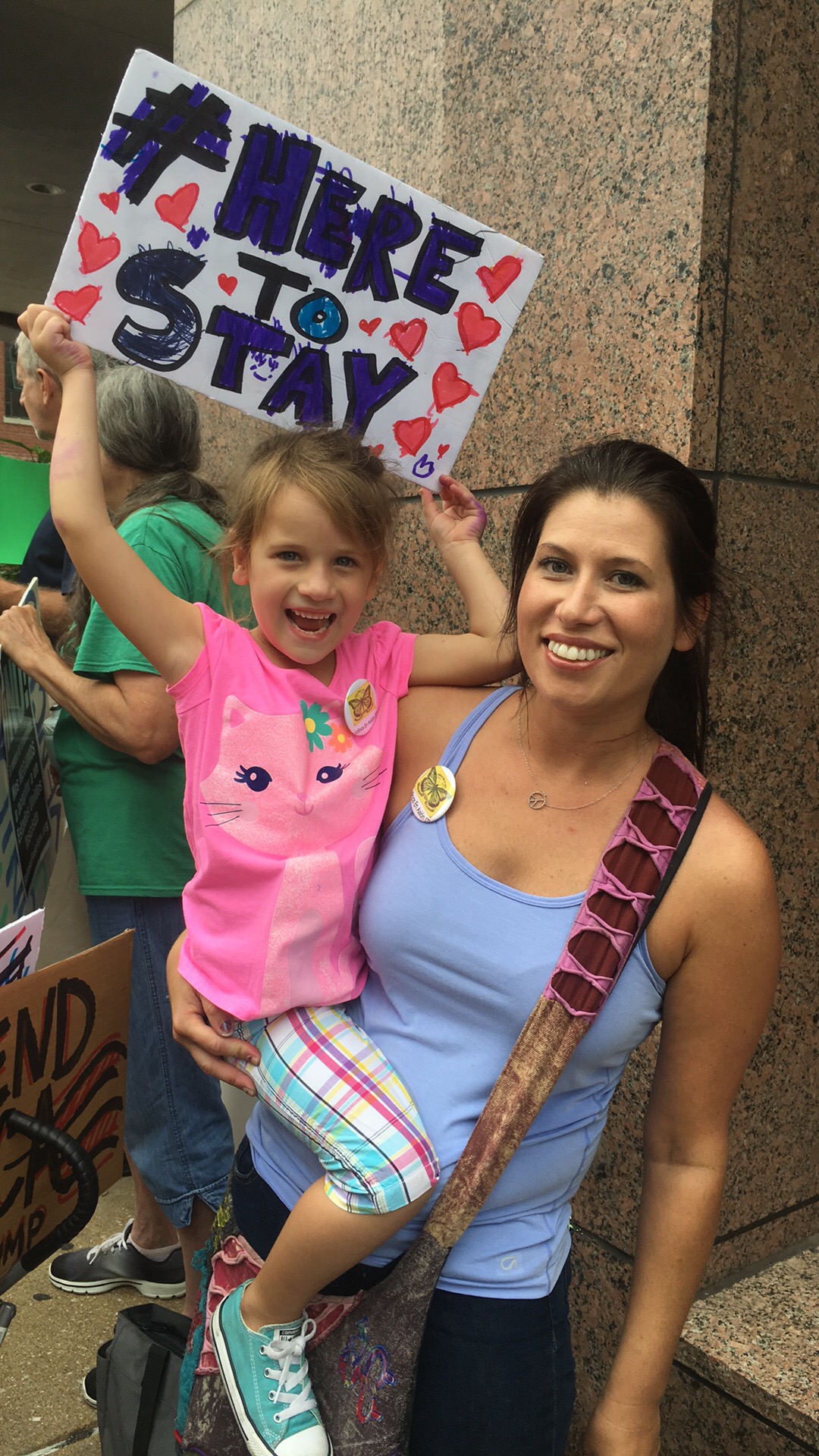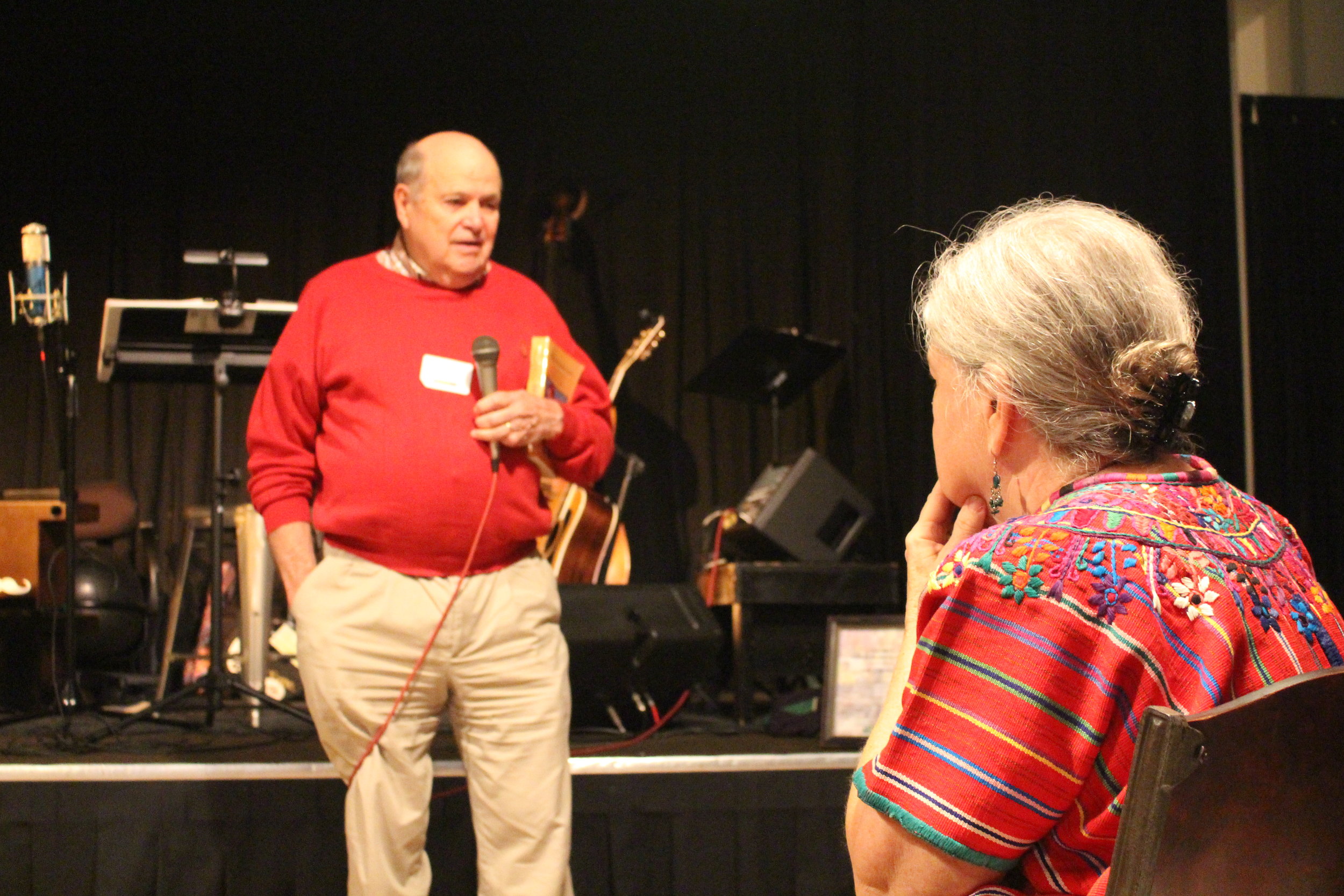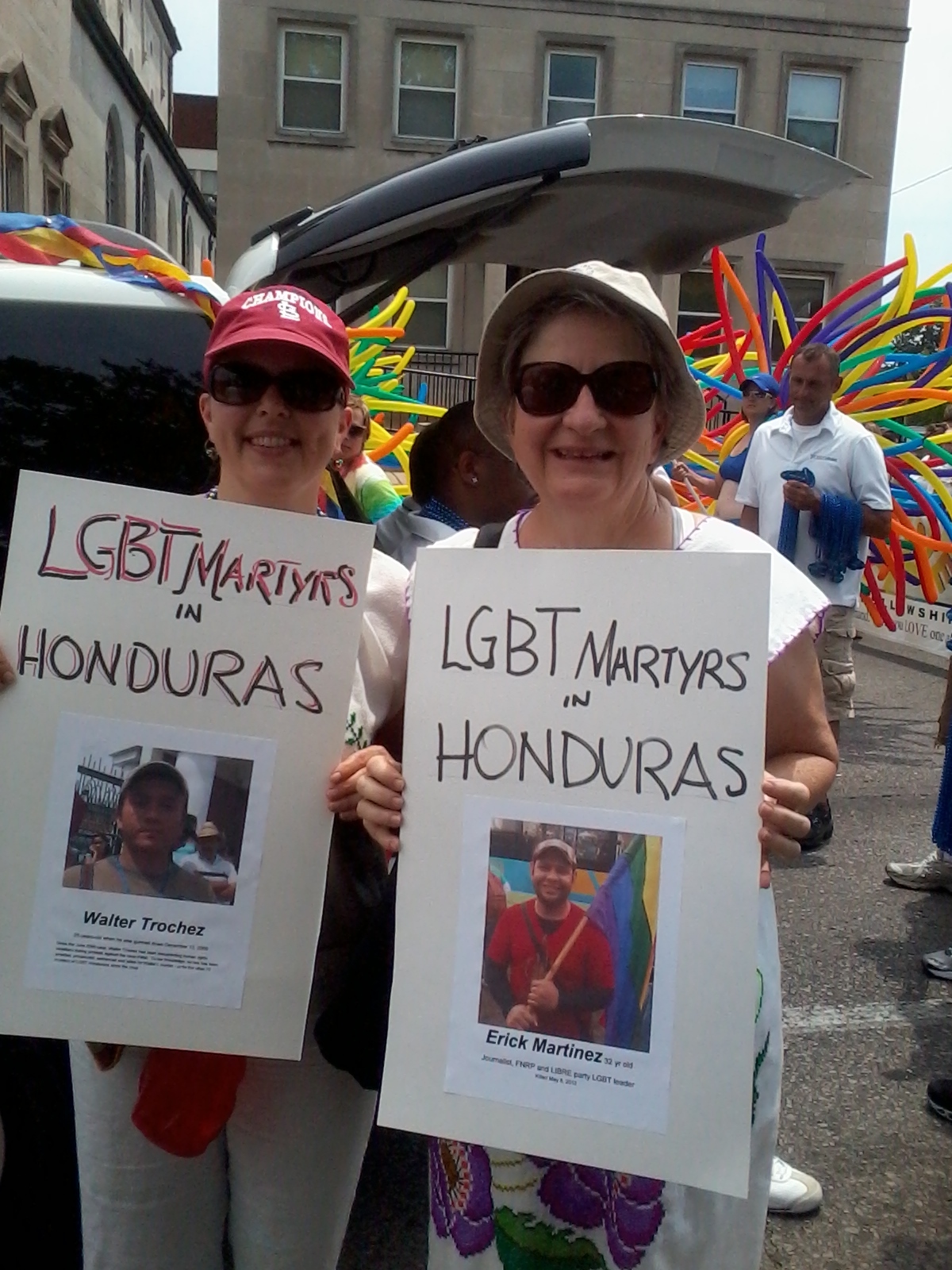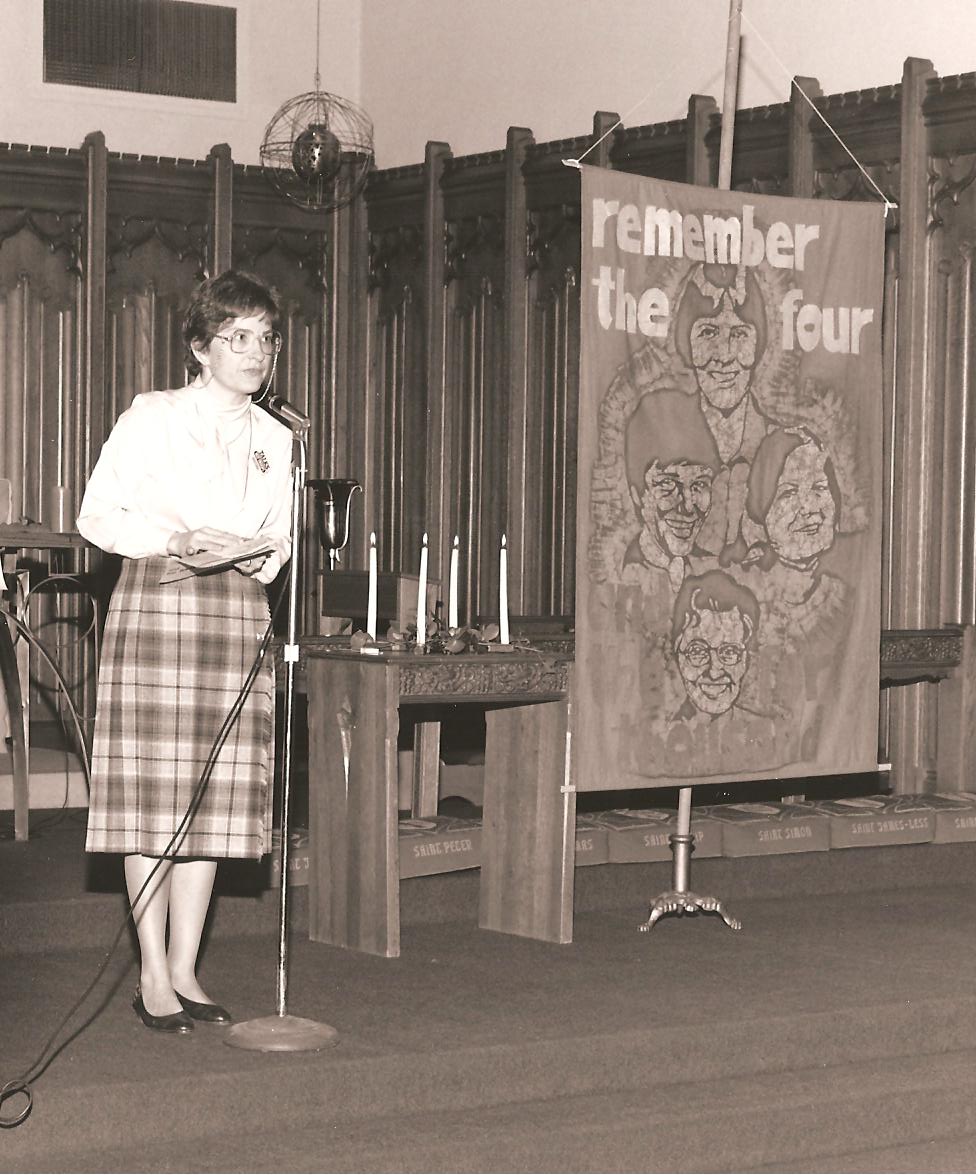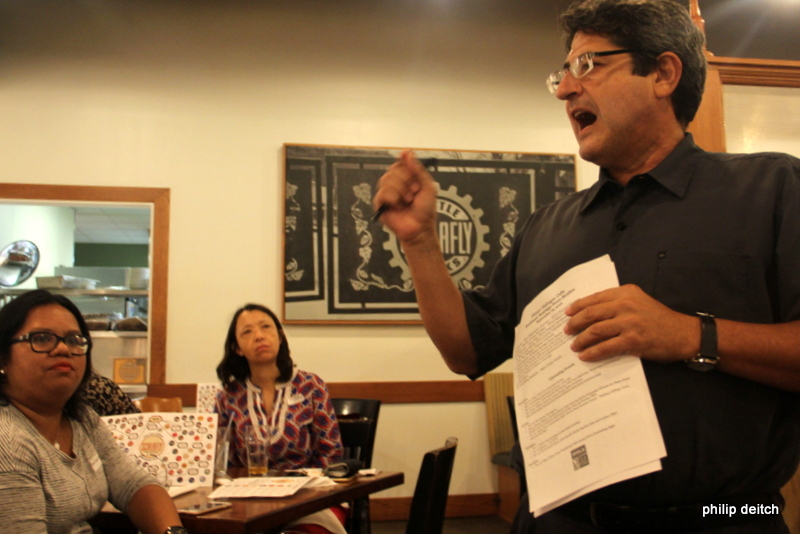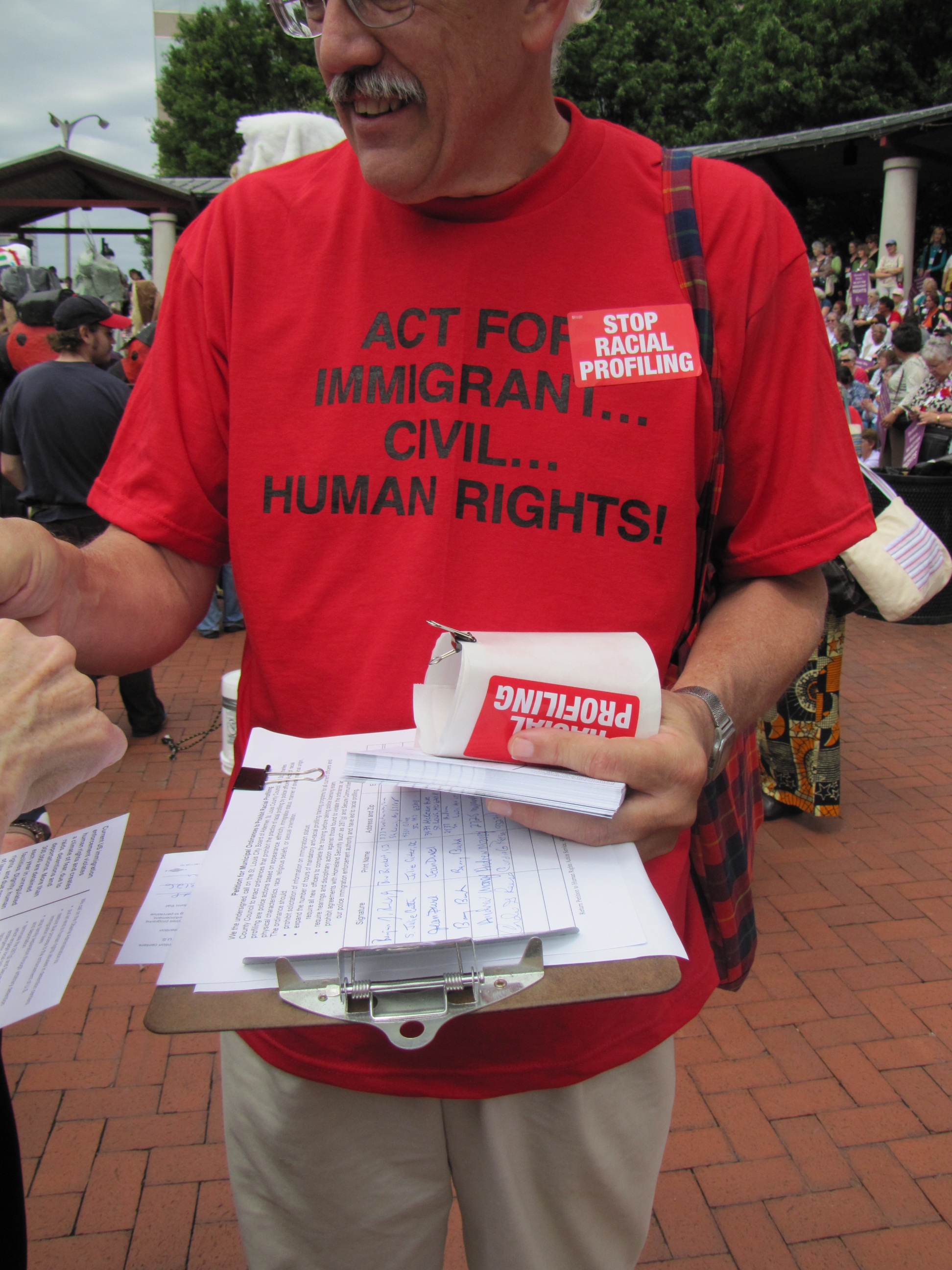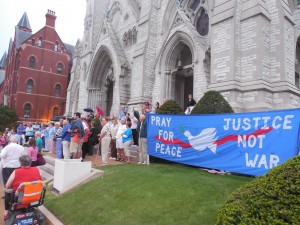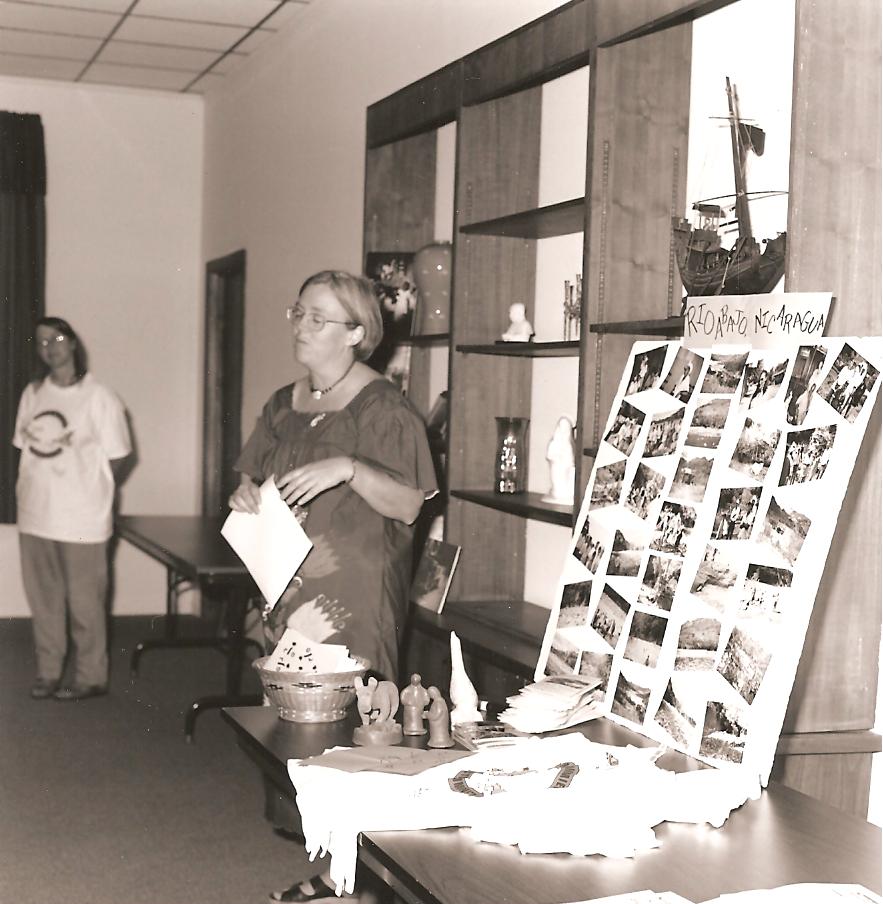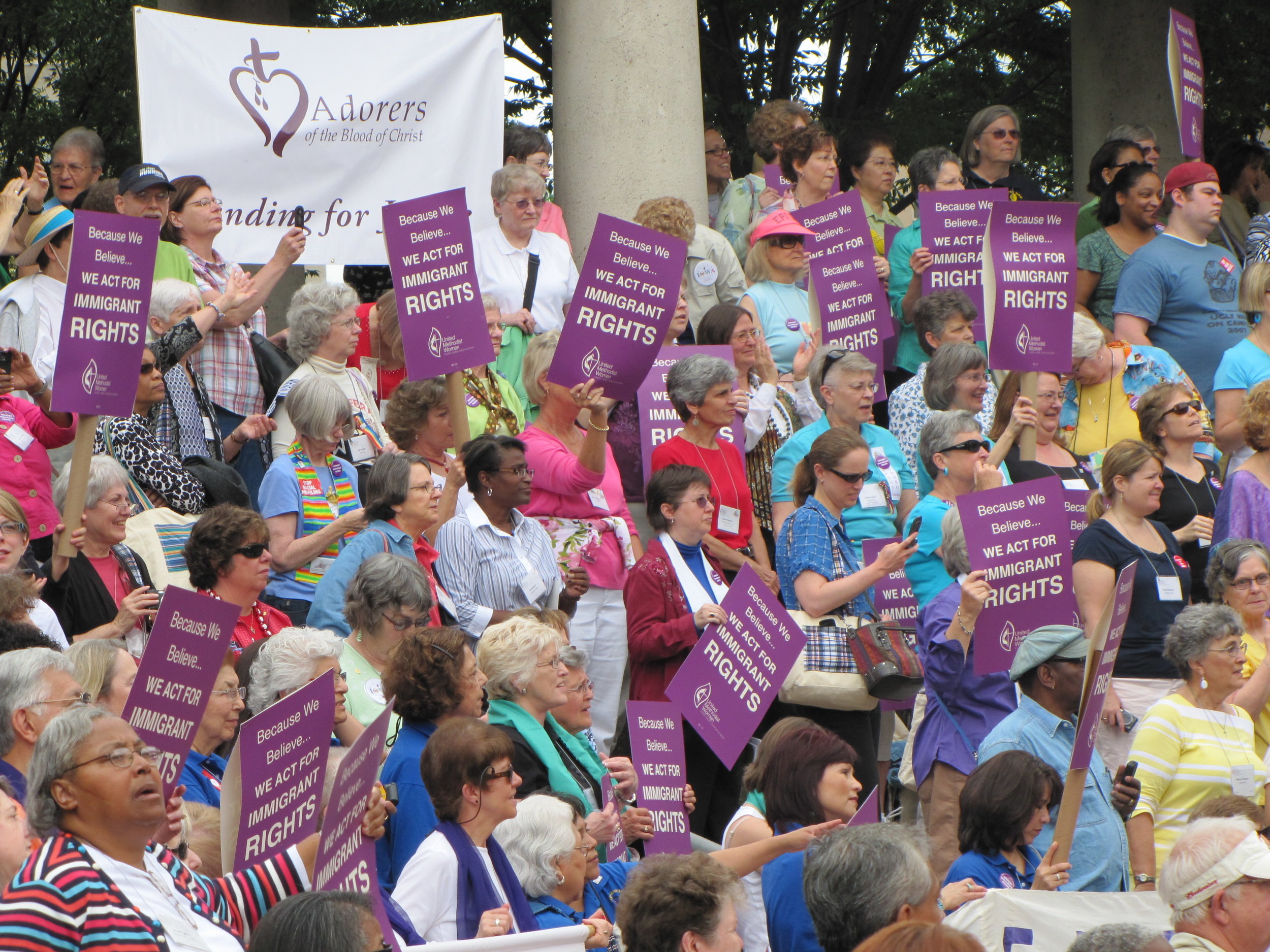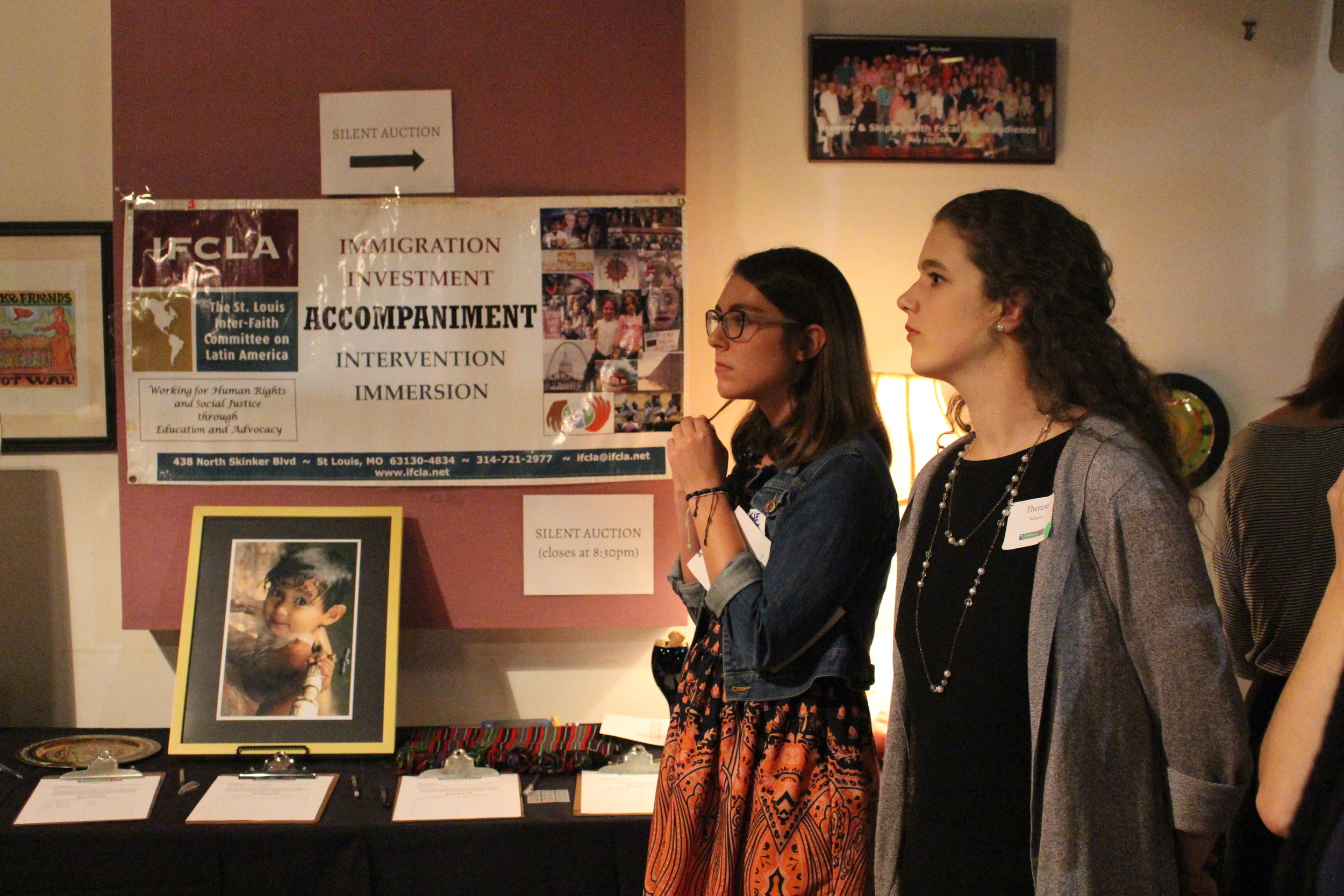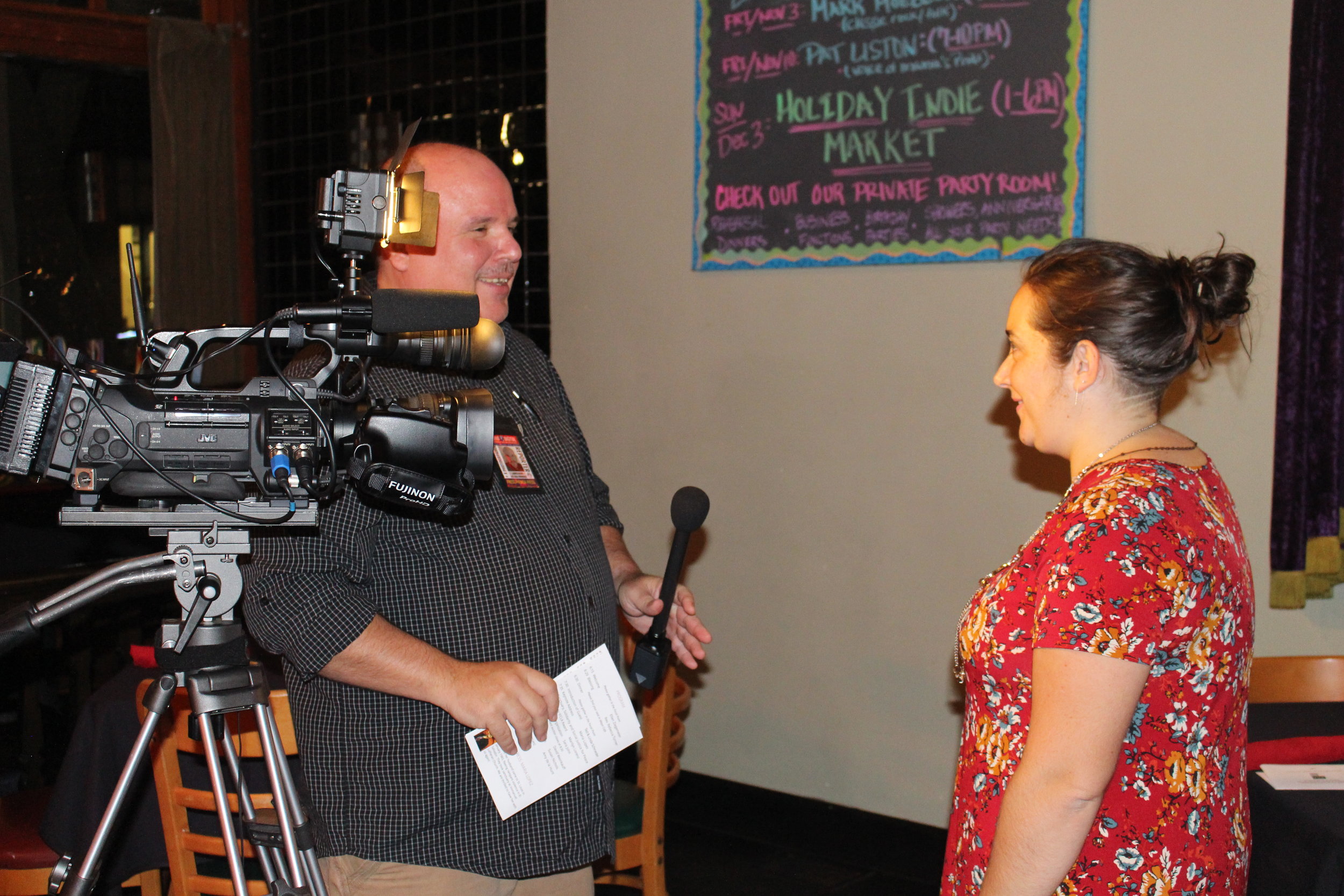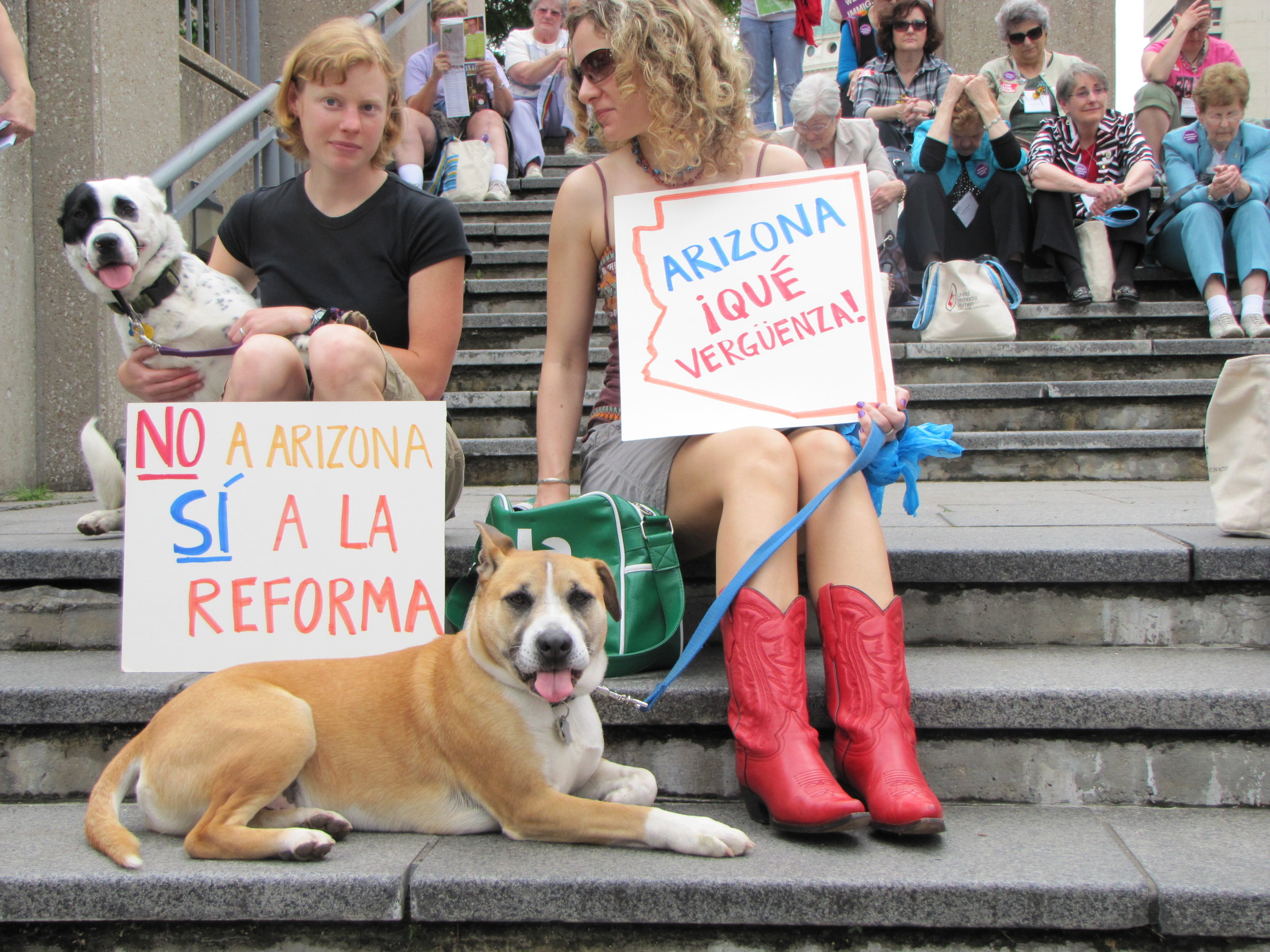History
We remember
Past actions
Past Leaders
Timeline
For information about what we're up to now, please click here.
2018:
IFCLA developed a strategic framework and restructured its organization, transitioning to a Board of Directors, Executive Director, Advisory Committee, and expanded staff and intern capacity.
Immigration 101 sessions engaged members of the St. Louis community in learning about the immigration system in the US and its history, contexts, and consequences.
Working with MODreamers, IFCLA pushed for the passage of the DREAM Act.
IFCLA held a Week of Action on the one-year anniversary of Alex Garcia entering sanctuary, which included three days of advocating for Alex and for sanctuary in Washington, DC.
The Accompaniment Program, which began in August 2017, continued to grow with more volunteers trained, more check-ins supported, and more ankle monitors removed.
2017:
IFCLA celebrated its 35th year with the 35th Annual Dinner at Maya Cafe.
In response to current politics, a DACA renewal clinic was held to support Missouri Dreamers.
The St. Louis Sanctuary Coalition is launched with the first Sanctuary cohort. Soon after, Alex Garcia takes Sanctuary at Christ Church UCC in Maplewood, Missouri.
2016:
IFCLA sent teams of volunteers to the Dilley Detention Center to work with women and children in detention to prepare for their credible fear interview, the first step in getting released from detention and on the road to qualifying for asylum.
2015:
IFCLA campaigned for farm worker rights with The Coalition of Immokalee Workers.
2013:
IFCLA helped produce the documentary "Set My Hands to Heal/Dar mis manos para sanar" chronicling the life of Ann Manganaro and her work in El Salvador, which was released in 2013. This tremendous project began in 2007 when Christen and Rodney Parker-Yarnal began interviews.
2011:
From 2011-2015, IFCLA served as fiscal agent for the New Mayas Society in Guatemala.
2000:
IFCLA began organizing groups to go to the School of the Americas to protest US training of Latin American military at Fort Benning, GA.
1998:
Hurricane Mitch called forth a generous response from many who had lived in, worked in, or visited Nicaragua and a sister relationship was formed with a community in the Limay valley called Rio Abajo. For eight years, delegations brought funds raised to rebuild homes, provide water and electricity, and help develop cottage industries (sewing, pottery and corn grinding). Reyna Moreno was hired as organizer for the communities. This project ended in 2006.
1994:
Student immersion trips to Latin America began.
1988:
In January, the Companion Community Project with Guarjila, El Salvador began. A delegation from IFCLA traveled to Guarjila to make a covenant with the community. This delegation was followed by many more, working to protect and defend human rights in El Salvador.
IFCLA continued to develop programs of education and advocacy, including national student immersion experiences and intern-run campaigns for sweat-free communities and sweat-free purchasing resolutions in the St. Louis area.
1984:
IFCLA discerned the decision to join the sanctuary movement and supported three sanctuaries in the St. Louis area through the 1980s until the Peace Accords were signed.
1983:
IFCLA began to send Witness for Peace long-term volunteers to Nicaragua and joined the Pledge of Resistance movement to stop the Reagan Administration from invading that country. Later, volunteers went to Guatemala to support the mothers of the disappeared and the communities in resistance through Peace Brigades International.
1982:
St. Louis Inter-Faith Committee on Latin America (IFCLA) was incorporated as a 501(c)(3) non-profit with a mission of accompaniment, education, and advocacy. IFCLA decided to establish the organization as non-hierarchical: a board of directors, consensus-driven core committee, and staff that shared decision-making power. Additionally, an advisory committee composed of religious leaders was formed to share experience and wisdom with IFCLA.
1979:
LASC produced a monthly newsletter and raised funds for literacy and health campaigns.
LASC co-sponsored a conference at Webster University, “Peoples in Struggle,” focusing on Nicaragua, Grenada and other liberation movements in Latin America.
1978:
LASC began meeting at the World Community Center.
1977:
IFCLA began as the Greater St. Louis Latin America Solidarity Committee (LASC) with potluck suppers hosted between Chilean refugees, Latin American students, and folks personally interested.
Last Updated: 12/21/2019
